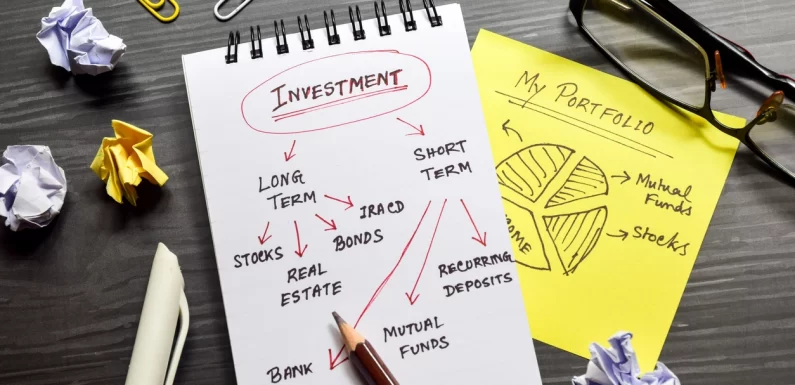
According to the fund’s investment goal and mandate, Hybrid mutual funds include both equity and asset classes by the order and investment objective of the fund. You will benefit from diversity if you do this.
You can gain from variety by doing this. The best investment choice is a hybrid mutual fund to increase equity while maintaining debt safety. Balanced Advantage Fund, one of the most well-known hybrid funds, automatically distributes equity and debt based on the upward or downward tendency of the market.
In doing so, it seeks to offer you the best possible market conditions while balancing the portfolio. For novice consumers, hybrid funds are a great option to start.
But that’s exactly where you need to know the types of hybrid mutual funds. Take a look here:
What are the Types of Hybrid Mutual Funds?
- Equity-Oriented/Aggressive Hybrid Fund: These funds are mainly for risk-takers and aggressive investors. 35-40% are invested in debt while the other 60% is invested in equity.
- The conservative/debt-oriented hybrid: With 60% to debt and 40% to stocks, this particular fund is a great investment for conservative investors.
- Balanced Hybrid Funds: Balanced funds ensure equal distribution of money into debt and equity classes. Investors can distribute their money between fixed income securities and stocks.
Taxation Of Profit From Hybrid Mutual Funds:
Profit earned from hybrid mutual funds come under taxation. Here are some of the essential factors worth keeping in mind.
Equity Component
- Up to Rs 1 lakh, long-term capital gains (LTCG) are excluded. Any amount over that is subject to a 10% tax without indexation.
- The tax rate for short-term capital profits is 15%. (STCG) debt element
Debt Component
The taxation of capital gains is identical to that of a debt fund. The revenue increases the investor’s regular income, which is then taxed by the relevant income tax bracket.
After the corresponding indexation advantage, long-term gains from the debt component are subject to a 20% tax rate. Without the benefit of indexation, it is 10%.
About Edelweiss Aggressive Hybrid Fund Regular – Growth
When it comes to investing in hybrid funds, Edelweiss offers great opportunities. Let’s check out the performance of these funds
Investment Objective & Benchmark
- Around 71.78% of the fund’s assets are allocated to equities, 30.1% to debt, and -1.94% to cash and cash reserves.
- The top three sectors account for about 38.91% of the assets, compared to the top 10 stock holdings’ approximately 31.02% share.
- The fund invests across market capitalizations. Generally, it adheres to a growth-oriented investing style, placing roughly 0.0% of its assets in giant and large-cap companies, 0.0% in mid-cap companies, and 0.0% in small-cap companies.
- Interest rate and credit risk are the two main risks associated with allocating debt assets in the portfolio. A fund’s weighted average credit ratings are used to determine the credit quality of debt instruments, while the fund’s duration determines interest rate movements. Funds with high credit quality typically hold securities with weighted average credit ratings of AA- and above.
In contrast, funds with medium credit quality typically have guards with intermediate A to BBB credit ratings. Funds with low credit quality typically hold securities with average credit ratings of less than BBB-.
A Tax on Dividend Income
A company’s creditworthiness and financial soundness are assessed by credit rating, which is a qualitative tool. It considers several factors, including the solvency and default rate of the concerned business enterprise.
If sold one year after the purchase date, the long-term capital gain tax will apply.
Long-term capital gain tax benefit will be applicable if sold one year after the purchase date. If your long-term capital gain exceeds 1 lakh, the current tax rate is 10%. Short-term capital gain tax is applicable if sold before one year from the purchase date. 15% is the current tax rate and 15% is not included in any cess or surge rate.
Final Thoughts:
Suppose you are considering investing in hybrid mutual funds. In that case, Edelweiss hybrid mutual fund is the best option for you as the fund company has become one of India’s newest and fastest-growing AMCs since its founding. Thanks to true-to-label products and top-notch knowledge platforms, a significant amount of investor folios have been generated for the fund company.
It offers a broad range of mutual fund schemes in the equity, debt, and hybrid categories, along with foreign fund of fund schemes and exchange-traded funds. They use cutting-edge technology and ongoing innovation to provide investors the best possible investment options and digital experience.









